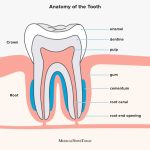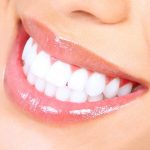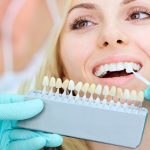Why Do My Teeth Hurt When I Eat? Common Causes and Effective Solutions
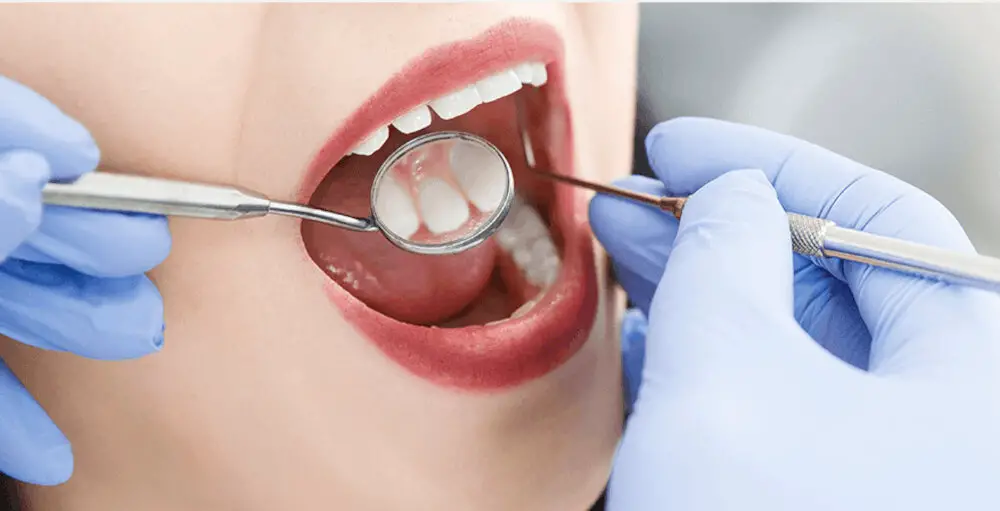
Have you ever felt a sharp pain in your teeth while biting into your favorite food? If so, you’re not alone. Tooth pain while eating is a common issue that affects people of all ages, and it can be caused by a variety of factors. From cavities to gum disease, there are many potential reasons why your teeth might hurt when you eat. Fortunately, there are also effective solutions available that can help alleviate this discomfort and restore your ability to enjoy your meals. One of the most common causes of tooth pain while eating is tooth decay. When bacteria in your mouth break down the sugars and carbohydrates in the foods you eat, they produce acid that can eat away at the enamel on your teeth. Over time, this can lead to cavities, which can cause sharp pain when you bite down on something. Other common causes of tooth pain while eating include gum disease, tooth fractures, and dental abscesses. If you’re experiencing tooth pain while eating, it’s important to see a dentist as soon as possible to determine the underlying cause and develop an effective treatment plan.
Tooth pain while eating is a common problem that affects millions of people worldwide. It can be caused by various factors, such as tooth decay, gum disease, cracked teeth, or problems with dental fillings. Other potential culprits include sensitive teeth, abscessed teeth, jaw disorders, and even sinus infections. The severity of the pain can range from mild discomfort to excruciating pain, and it can interfere with your ability to eat and drink normally. Fortunately, there are many effective solutions for tooth pain while eating, including good oral hygiene practices, over-the-counter pain relievers, and dental treatments such as fillings, root canals, and extractions. By understanding the underlying causes of your tooth pain and seeking appropriate treatment, you can alleviate your discomfort and protect your dental health for years to come.
Addressing the problem of tooth pain when eating is crucial for maintaining good dental health and overall well-being. Ignoring the pain can lead to more serious dental issues such as decay, infection, and even tooth loss. Additionally, tooth pain can make it difficult to eat and speak, which can impact one’s quality of life. Effective solutions, such as proper oral hygiene, regular dental checkups, and a healthy diet, can prevent and alleviate tooth pain. It is important to seek professional help from a dentist if the pain persists, as they can diagnose the underlying cause and provide appropriate treatment to prevent further complications.
The article \Why Do My Teeth Hurt When I Eat Common Causes and Effective Solutions\ is an informative piece that sheds light on the various reasons why people might experience tooth pain while eating. The article provides a comprehensive overview of the most common causes of tooth pain, including tooth decay, gum disease, and teeth grinding. Moreover, the article also offers practical solutions that can help alleviate tooth pain, such as maintaining good oral hygiene, using desensitizing toothpaste, and getting regular dental check-ups. Overall, the article serves as a valuable resource for anyone who is experiencing tooth pain and looking for effective ways to manage it.
Common Causes of Teeth Sensitivity
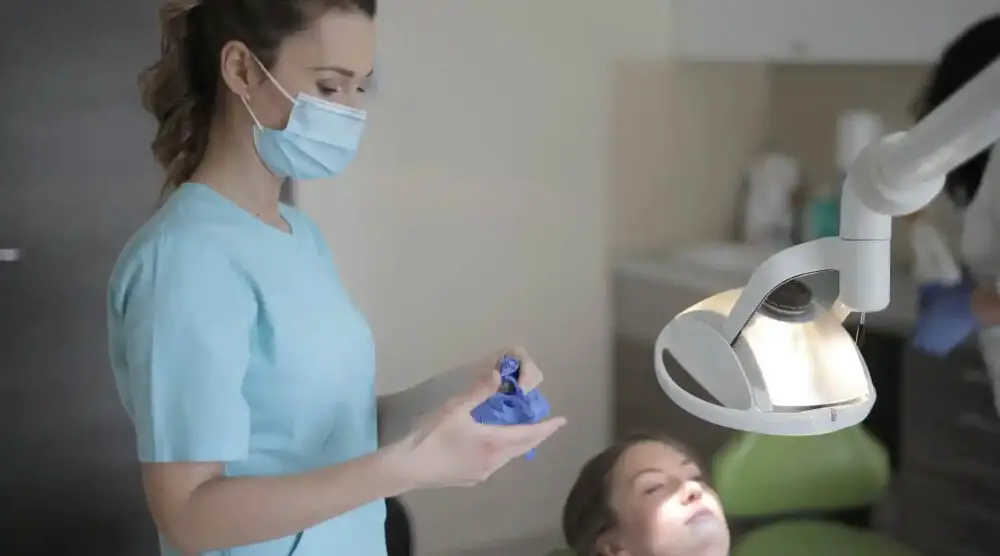
Tooth sensitivity is a common dental problem that causes discomfort or pain in the teeth when exposed to certain stimuli such as hot, cold, sweet, or acidic foods and drinks. Several factors can contribute to teeth sensitivity, including tooth decay, gum recession, enamel erosion, and cracked or chipped teeth. Tooth decay is caused by the buildup of harmful bacteria in the mouth that produce acid, which eats away the tooth enamel and exposes the sensitive dentin layer underneath. Gum recession occurs when the gum tissue pulls away from the teeth, exposing the tooth roots and leaving them vulnerable to sensitivity. Enamel erosion can result from a variety of factors, including acidic foods and drinks, tooth grinding, and certain medications. Cracked or chipped teeth can also cause sensitivity by exposing the underlying nerves and causing pain or discomfort when eating or drinking. Effective solutions for teeth sensitivity depend on the underlying cause of the problem. For tooth decay and gum recession, a dentist may recommend fillings, crowns, or root canal therapy to repair or replace the damaged tooth structure. In cases of enamel erosion, dietary changes and fluoride treatments can help to strengthen the enamel and reduce sensitivity. For cracked or chipped teeth, a dentist may recommend bonding or a dental implant to restore the tooth and prevent further damage. Additionally, using a desensitizing toothpaste, avoiding acidic foods and drinks, and practicing good oral hygiene habits can also help to alleviate tooth sensitivity and promote overall dental health.
Tooth sensitivity can be a painful and uncomfortable experience that can impact one’s daily life. It is caused by the exposure of dentin, the softer layer of the tooth that lies beneath the enamel. This can occur due to a variety of factors, including tooth decay, gum recession, teeth grinding, and aggressive brushing. When the dentin is exposed, it can cause discomfort and pain when exposed to hot or cold temperatures, sweet or acidic foods, or even air. Fortunately, there are effective solutions to help alleviate tooth sensitivity, such as desensitizing toothpaste, fluoride treatments, and dental bonding. It is important to consult with a dental professional to determine the underlying cause of tooth sensitivity and develop an appropriate treatment plan.
Tooth decay, also known as dental caries, is a common dental problem that occurs when plaque builds up on the teeth and produces acid that wears away the enamel. If left untreated, the decay can penetrate deeper into the tooth, causing pain, sensitivity, and even infection. Poor oral hygiene, a diet high in sugar and carbohydrates, and genetics can all contribute to tooth decay. To prevent and treat tooth decay, it is important to brush and floss regularly, limit sugary and acidic foods and drinks, and visit the dentist regularly for cleanings and check-ups. In severe cases, a filling, crown, or root canal may be necessary to repair the damaged tooth.
Gum disease, also known as periodontal disease, is a serious oral health issue that affects the soft tissues and bones that support the teeth. It is caused by the buildup of plaque and tartar on the teeth, which can lead to inflammation and infection. Common symptoms of gum disease include bleeding gums, bad breath, and loose teeth. If left untreated, it can eventually lead to tooth loss and other serious health problems. Effective solutions for gum disease include regular brushing and flossing, professional dental cleanings, and in severe cases, surgery. It is important to take gum disease seriously and seek treatment as soon as possible to prevent further damage to your oral health.
Enamel erosion is a common dental problem that occurs when the hard, protective outer layer of the teeth wears away due to various factors such as acidic foods and drinks, tooth decay, and vigorous brushing. As the enamel erodes, the underlying dentin becomes exposed, leading to tooth sensitivity, discoloration, and even decay. People who consume high amounts of sugary and acidic foods, have gastroesophageal reflux disease (GERD), or suffer from eating disorders are at a higher risk of enamel erosion. To prevent enamel erosion, it’s essential to maintain proper oral hygiene, avoid sugary and acidic foods and drinks, and limit snacking between meals. Additionally, using a soft-bristled toothbrush and brushing gently can help protect the enamel while still maintaining good oral health.
Cracked teeth can be a painful and alarming dental issue that requires immediate attention. The most common causes of cracked teeth include trauma, grinding, and chewing on hard objects. When a tooth cracks, it can cause sensitivity, pain, or discomfort when eating or drinking. Additionally, if left untreated, a cracked tooth can lead to infection or decay. Treatment options for cracked teeth vary based on the severity of the crack and can include dental bonding, crowns, or root canal therapy. It is important to seek dental care as soon as possible if you suspect you have a cracked tooth to prevent further damage and alleviate any discomfort.
Grinding teeth, also known as bruxism, is a common condition that can cause tooth pain when eating. This condition can be caused by stress, anxiety, or even an abnormal bite. Grinding teeth can wear down the enamel on teeth and lead to sensitivity, pain, and even tooth fractures. Effective solutions for bruxism include stress reduction techniques, wearing a mouthguard at night, and correcting any misaligned bite with orthodontic treatment. It is important to address this condition promptly to prevent further damage to the teeth and improve overall oral health.
Effective Solutions for Teeth Sensitivity
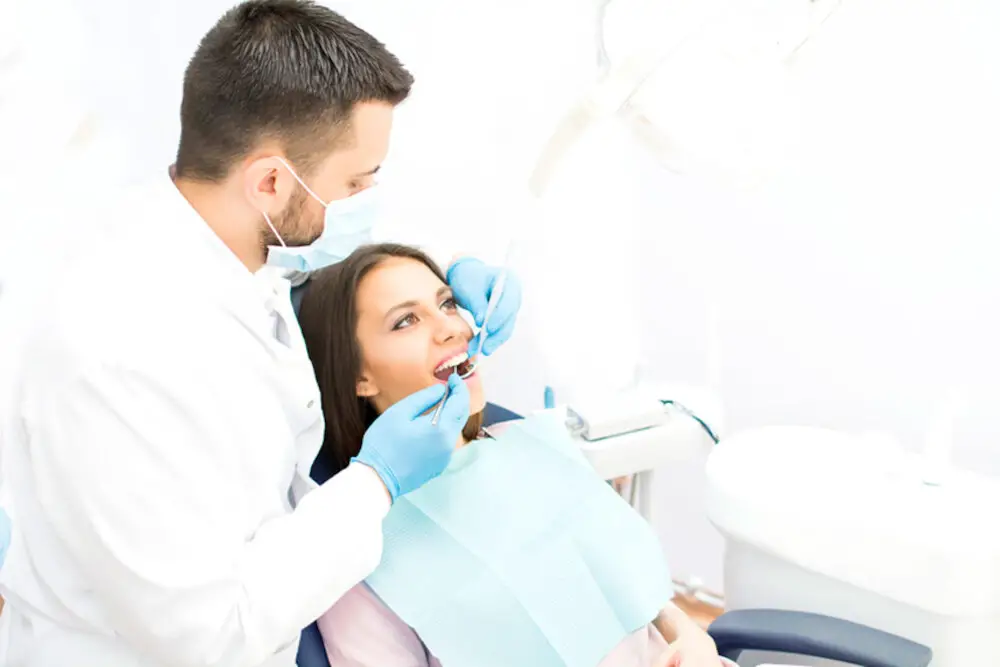
Teeth sensitivity is a common problem that affects many people, causing discomfort and pain when consuming certain foods and drinks. The main cause of tooth sensitivity is the exposure of the tooth’s dentin, which is the layer beneath the enamel that contains tiny tubules. These tubules lead to the tooth’s nerve and can become exposed due to various factors such as brushing too hard, gum recession, and tooth decay. Fortunately, there are effective solutions to alleviate tooth sensitivity, such as using desensitizing toothpaste, avoiding acidic and sugary foods and drinks, and wearing a nightguard if you grind your teeth. One of the most effective ways to combat tooth sensitivity is by using desensitizing toothpaste. These toothpaste contain ingredients such as potassium nitrate or strontium chloride that help to block the tiny tubules in the dentin, reducing sensitivity. It’s important to use the toothpaste consistently over a period of weeks to see results. Another solution is to avoid acidic and sugary foods and drinks, which can erode the enamel and cause sensitivity. Instead, opt for foods that are high in calcium and phosphorus, such as dairy products and leafy greens, which can help to strengthen the enamel. Additionally, wearing a nightguard can prevent teeth grinding, which can cause sensitivity by wearing down the enamel. By following these effective solutions, you can alleviate tooth sensitivity and enjoy your favorite foods and drinks without discomfort.
Practicing good dental hygiene is essential for maintaining healthy teeth and preventing tooth pain while eating. Brushing twice a day with fluoride toothpaste, flossing daily, and using mouthwash can help remove plaque, bacteria, and food particles that can cause tooth decay and gum disease. It is also important to avoid sugary and acidic foods and drinks, as they can erode tooth enamel and lead to sensitivity and pain. Regular dental check-ups and cleanings can also detect any issues early on and prevent them from worsening. Overall, taking care of your teeth through proper hygiene and diet can help you enjoy your meals without any discomfort.
Desensitizing toothpaste is an effective solution for those who experience sensitivity or discomfort while eating. This toothpaste contains compounds that help to block the nerve endings in the teeth, thereby reducing the sensitivity. The active ingredients in the desensitizing toothpaste include potassium nitrate, fluoride, and strontium chloride. These ingredients work together to strengthen the enamel and reduce the sensitivity of the teeth. It is important to note that desensitizing toothpaste should be used consistently over a period of time to see results. Additionally, it is recommended to use a soft-bristled toothbrush and avoid brushing too aggressively to prevent further damage to the enamel.
Using a mouthguard for grinding teeth can be an effective solution to prevent tooth pain caused by bruxism. Bruxism is a condition that causes a person to grind or clench their teeth, usually during sleep. This can lead to tooth pain, headaches, and jaw discomfort. A mouthguard is a protective device that fits over the teeth, cushioning them from the force of grinding and reducing the risk of damage. Mouthguards can be custom-made by a dentist or purchased over-the-counter, and should be worn at night or during periods of stress. While a mouthguard may not cure bruxism, it can provide relief from tooth pain and protect the teeth from further damage.
If you are experiencing tooth pain while eating, it may be time to schedule a visit with your dentist. Tooth pain can be caused by a variety of issues such as cavities, gum disease, or even a cracked tooth. Your dentist will be able to examine your teeth and determine the root cause of the pain. Depending on the severity of the issue, treatment may include a filling, root canal, or even extraction. It is important to address tooth pain promptly to prevent further damage and possible infection. Your dentist can also provide helpful tips on proper oral hygiene and preventative care to keep your teeth healthy and strong.
Prevention of Teeth Sensitivity
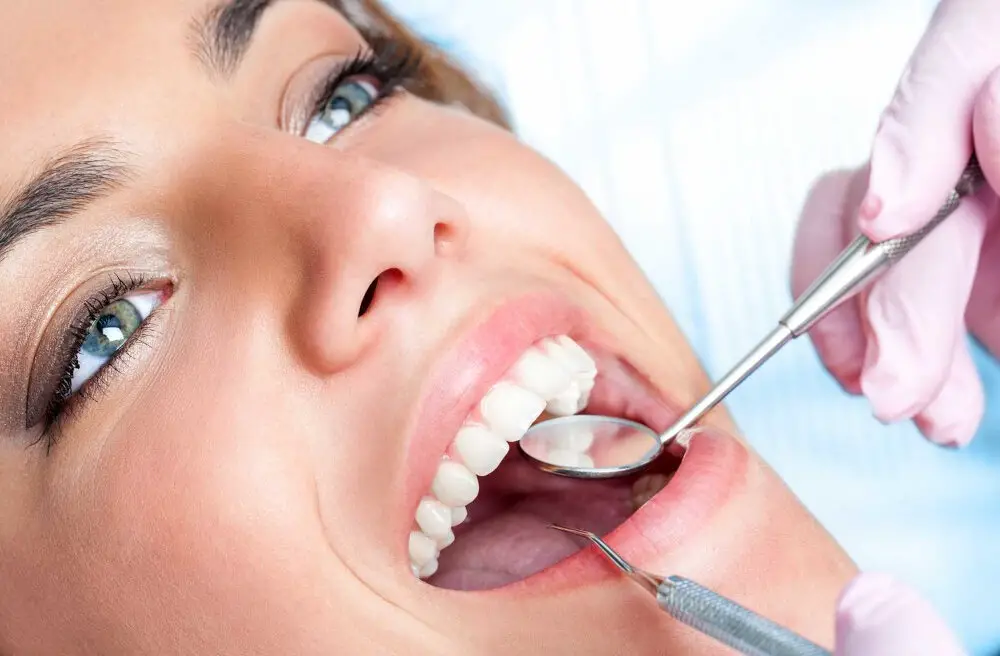
To prevent teeth sensitivity, it is crucial to maintain good oral hygiene practices, including brushing your teeth twice daily with a fluoride toothpaste, flossing regularly, and using an antiseptic mouthwash. Additionally, it is essential to avoid brushing your teeth too hard, which can damage the enamel and expose the sensitive dentin layer underneath. Use a soft-bristled toothbrush and gentle circular motions to clean your teeth without causing harm. Another effective way to prevent teeth sensitivity is to avoid acidic and sugary foods and beverages, which can erode the enamel and cause tooth sensitivity. It is also best to limit your intake of carbonated drinks, which can cause dental erosion and increase tooth sensitivity. If you do consume acidic or sugary foods, rinse your mouth with water afterward to help neutralize the acids and prevent damage to your teeth. Finally, if you grind your teeth, wear a mouthguard at night to protect your teeth from damage and reduce sensitivity. By following these preventative measures, you can minimize the risk of tooth sensitivity and maintain optimal oral health.
Regular dental checkups are essential to maintaining good oral health and preventing dental problems. These checkups allow dentists to detect any potential issues early on and provide appropriate treatment before they become more serious. During a dental checkup, the dentist will examine your teeth, gums, and mouth for signs of decay, gum disease, and other issues. They may also take x-rays to check for any hidden problems. In addition to detecting and treating dental problems, regular checkups also provide an opportunity to receive advice on proper oral hygiene and tips for maintaining healthy teeth and gums. Don’t wait until you experience dental pain to see a dentist – schedule regular checkups to keep your smile healthy and pain-free.
One of the most common causes of tooth sensitivity is hard brushing. Many people mistakenly believe that brushing their teeth harder will result in cleaner teeth, but in reality, it can actually cause damage to the enamel and gums. When you brush too hard, you can wear away the protective layer of enamel, exposing the sensitive dentin underneath. This can cause pain and discomfort when eating or drinking hot or cold foods and beverages. To avoid this, use a soft-bristled toothbrush and gentle circular motions to clean your teeth. Don’t apply too much pressure and remember to brush for at least two minutes twice a day. By taking care of your teeth and avoiding hard brushing, you can help prevent tooth sensitivity and keep your smile healthy and pain-free.
Limiting sugary and acidic foods is a crucial step towards maintaining good oral health. Consuming excessive amounts of sugary and acidic foods can lead to tooth decay and erosion, which can cause sensitivity and pain when eating. Sugary foods feed the harmful bacteria in your mouth, which produce acids that erode your teeth. On the other hand, acidic foods can directly weaken the enamel of your teeth, making them more susceptible to decay and sensitivity. Therefore, it is recommended to limit the consumption of sugary and acidic foods and drinks, and to brush and floss regularly to maintain a healthy and pain-free smile.
Using a fluoride mouthwash can be an effective solution for tooth sensitivity caused by enamel erosion. Fluoride is a mineral that can help strengthen tooth enamel and protect it from further damage. By rinsing with fluoride mouthwash daily, you can replenish the natural minerals that have been lost from your teeth and create a protective layer that can reduce sensitivity. It’s important to choose a mouthwash that contains fluoride and follow the instructions carefully to ensure that you are using it correctly. While fluoride mouthwash can be helpful, it’s also important to address the underlying cause of your tooth sensitivity and consult with your dentist for personalized recommendations.
There are several common causes of tooth pain when eating, and effective solutions can help alleviate the discomfort. Tooth decay is a common culprit, and it can be treated with a filling or crown. Gum disease can also cause tooth pain, and proper oral hygiene and professional cleaning can help prevent and treat it. Tooth sensitivity to hot or cold temperatures can be caused by enamel erosion or gum recession, and using a desensitizing toothpaste or receiving a fluoride treatment from a dentist can help. Finally, cracked or chipped teeth can cause pain when eating, and a dental crown or bonding can provide a solution. By addressing these common causes with effective solutions, people can enjoy eating without tooth pain.
Maintaining proper dental hygiene is of utmost importance for overall oral health. Neglecting dental care can lead to various dental problems such as tooth decay, gum disease, and bad breath. Poor oral health can also impact one’s overall health, leading to issues such as diabetes, heart disease, and respiratory infections. Regular brushing, flossing, and dental check-ups can prevent such issues and keep your teeth and gums healthy. Additionally, a balanced diet rich in nutrients can help strengthen teeth and prevent decay. Taking care of your teeth not only maintains your oral health but also contributes to your overall well-being.
It is crucial to note that seeking professional help is essential if you experience persistent tooth pain when eating. Ignoring the discomfort and hoping it goes away on its own can lead to severe dental problems. A dentist can identify the root cause of the pain, provide effective solutions, and prevent further damage to the teeth and gums. It is also vital to communicate openly with your dentist about any concerns or anxieties you may have regarding dental procedures. Remember, taking care of your oral health is an investment in your overall well-being, and seeking professional help is a significant step towards achieving a healthy smile.
Conclusion

In conclusion, experiencing tooth pain while eating can be a frustrating and uncomfortable experience. However, by identifying the underlying cause of the pain, you can take effective steps to alleviate your discomfort. Common causes of tooth pain while eating include tooth decay, gum disease, tooth sensitivity, and dental abscesses. Effective solutions may include practicing good oral hygiene, avoiding certain foods and drinks, using desensitizing toothpaste or mouthwash, or seeking professional dental care. It is important to prioritize your dental health to prevent further damage and ensure a pain-free eating experience in the future.

